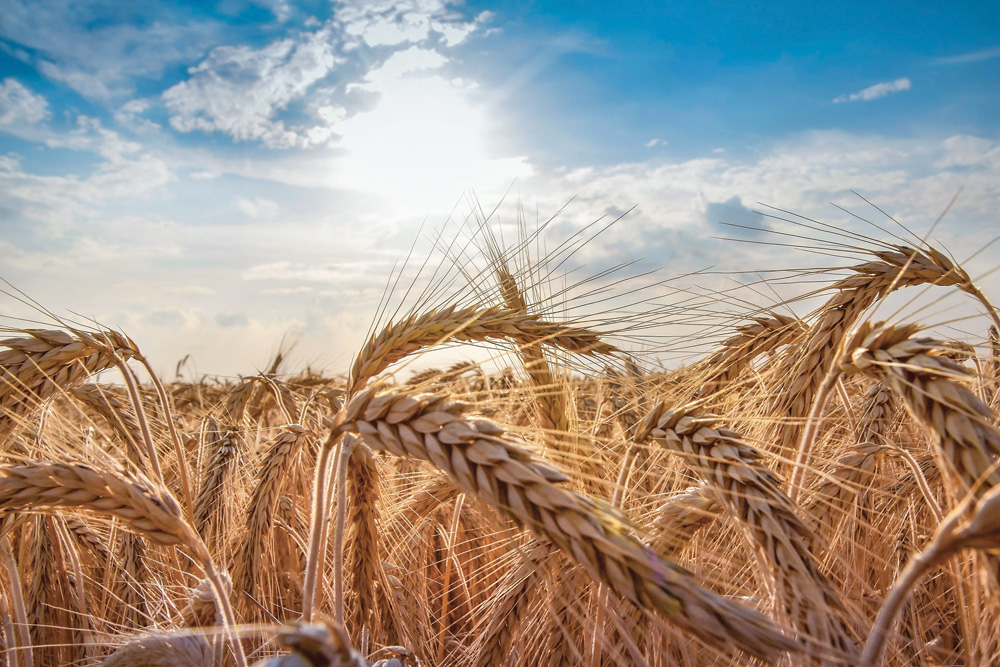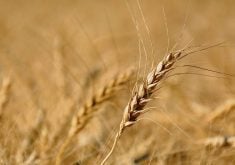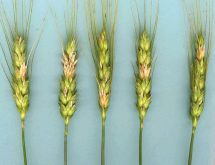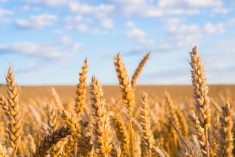Peruvian agriculture officials have got an eyeful of Canada’s grain quality assurance system.
They were in Canada the week of Sept. 9 to meet with members of our grain industry and Canadian regulators.
It’s part of an effort to keep Canadian wheat exports flowing to Peru. Officials from Peru’s Servicio Nacional de Sanidad Agraria (National Agrarian Health Service, or SENSA), were in the country as part of an ongoing dispute involving weed seeds in wheat imports from Canada, said Cam Dahl, president of Cereals Canada.
Peru is a long-standing and major Canadian wheat customer, but it has complained about weed seeds in Canadian wheat, which, if not addressed, threaten future Canadian wheat exports to the South American nation.

“We’re confident that we will meet their environmental needs and that we can continue to have a trading relationship without putting at risk the possibility that we will bring in weeds that don’t currently exist in Peru,” Dahl said.
In an email he added: “They have returned to Peru and will be writing a report on their audit of the Canadian system(’s) regulatory and industry processes. This report will be the basis of the Peruvian regulatory response. I was pleased with how the week went, but am in no position to presume what the report back to the Government of Peru will say.”
Canada exported 1.2 million and 1.1 million tonnes of wheat to Peru the last two crop years, respectively, Dahl said.
Read Also

Mazergroup’s Bob Mazer dies
Mazergroup’s Bob Mazer, who helped grow his family’s company into a string of farm equipment dealerships and the main dealer for New Holland machinery in Saskatchewan and Manitoba, died July 6 from cancer.
Canadian wheat exports to Peru have not been interrupted so far, but in July 2018 Peru complained to the World Trade Organization that Canadian wheat contained weed seeds that threatened its environment.
Canada immediately responded, Dahl said.
“We have a good relationship and they (Peru) have delayed the implementation (of weed seed restrictions) until we’ve had an opportunity to sit down and go through what their needs are and how we can meet them and what we can and can’t do when it comes to things like weed seeds and diseases,” he added. “No way has it been a confrontation discussion over the last year and a bit.”
Canada’s concern is it can’t guarantee wheat exports will be weed free, Dahl said.
“We cannot provide zero tolerance,” he said. “So it would eventually close that market for us (if that’s what was implemented) and it’s over a million tonnes (of Canadian wheat a year).”
Dahl is confident Peru’s concerns are sincere and that it isn’t using a phytosanitary issue as a non-tariff trade barrier.
“This is just something we are going to have to work through with them,” he said. “We have been exporting to Peru for about 40 years and during that time there have been no instances where weed seeds from Canada escaped and started growing in Peru.”
Dahl said Canada has a good story and told it.
The grain trade, including Pulse Canada, along with officials from the Canadian Grain Commission and Canadian Food Inspection Agency, met with the Peruvian delegation in Winnipeg Sept. 11, Dahl said. They saw Canada’s grain sampling and testing protocol.
“We actually took them out to a field, literally, and toured a modern, commercial farm with storage, aeration and sensors in the bins and that kind of thing,” Dahl said. “We went through a primary elevator. We also went through a quality assurance lab here in Winnipeg of one of the big exporters. And they went out and did something similar in Vancouver.
“I think we gave them the information they needed. We can’t prejudge what their regulatory decision will be.”
Dahl also noted how well the grain trade and government regulators co-operated in the effort.
“We do need to say that when government and industry work well together and this is a case where they did.
New crop missions gearing up
Canada’s 2019 harvest isn’t all in the bin yet, but nevertheless, plans are already underway for new crop missions to tell Canadian grain customers what they can expect, says Cereals Canada president Cam Dahl.
It’s an annual tradition aimed at maintaining and expanding traditional markets and developing new ones.
Grain quality experts from the Canadian Grain Commission and Canadian International Grains Institute, provide customers with information about the functionality of the new crop, supply, answer questions and address concerns.
Delegations also include members of the grain trade and farmers, with the latter being able to provide a story and face for Canadian crops.
This fall’s new crop missions start with a meeting of the delegations in Winnipeg Nov. 6 followed by a session with Canadian millers in Mississauga, Ont., Dahl said.
The other missions are as follows:
- Nov. 11-25 — Japan, Philippines, Indonesia, Singapore, China.
- Nov. 19-29 — Mexico, Ecuador, Colombia, Peru, Chile.
- Dec. 8-13 — Algeria, Tunisia, Morocco, Italy.
While in Italy Canadian officials will meet with officials to discuss restoring greater market access for Canadian durum wheat, currently discriminated against by country-of-origin labelling, Dahl said.
That delegation returns to Canada from Italy Dec. 17.
“This is the first year in a long time that we’re going to Tunisia,” he said. “It used to be a really big durum market… ”
- Jan. 21-23 — United Arab Emirates, (hub for the Gulf region) and Nigeria.




















